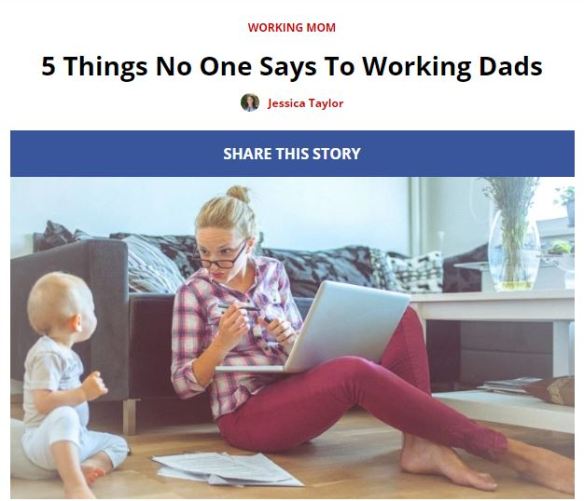Published on Forbes: Mar. 6, 2012
*most-read article on Forbes.com for 24+ hours
When I first started attending networking events, I was terrified to approach large groups of strangers. I watched some of my peers dive into these situations with ease, and wondered how on earth they made it look so natural. Meanwhile, I found myself sitting awkwardly alone, clutching a cocktail, and desperately brainstorming conversation topics.
Fortunately, I’ve improved my networking skills over the years, and am much less likely now to stick out like a sore thumb at events. I’ve learned that the most important part of successful networking is to have a good icebreaker to start a conversation and a smooth closing statement for when you’re ready to move on.
Here are a few inside tips to help you master the art of starting and ending those tricky conversations:
Opening Lines
To Start a Conversation
A simple introduction can transition into a solid conversation if you’re willing to share a bit about yourself right off the bat.
Try: Hi, I’m Jessica and I work in the PR department at Company X. My role has been super challenging lately because of all the new regulations around paid placements in media spots. Have you been dealing with that, too?
To Make a Friend
A big event can be a lot more fun (and a lot less intimidating) if you can find a pal to stick by your side. Asking someone to explore different areas with you is a nice way to talk with less pressure.
Try: Hi, have you been to the silent auction table yet? I’m heading over there now and would love some company.
To Get Advice
If you’re interested in a new opportunity or area of work, networking is a great way to get more information. Don’t be afraid to ask someone candid questions after giving some background on why you’re interested.
Try: Hi, I see that you work at Company X. I’ve always been interested in their work, and recently saw a position open up that I’m thinking about applying to. Do you have any advice for me? What’s it like working there?
To Get Your Bearings
Large conferences and events can be pretty overwhelming. If you’re a first-time attendee, approaching someone for assistance can be an easy way to start a conversation. Look for someone who seems familiar with the scene and ask for an insider tip.
Try: Hi, I’ve never been to this event before. You look like a regular—any tips you could give me on what to expect? What are the best sessions here?
To Lighten the Mood
When in doubt, ask a question to prompt a conversation. Stick with light, generic topics, and offer them with a smile.
Try: How many people do you think are here? Can you believe we have to wear these awful nametags? Were you here last year when the keynote speaker was late?
Parting Ways
The icebreakers above can be the launching pad you need to start networking and feel more comfortable in an unfamiliar situation. But unless you’re lucky enough to stumble into your soul mate at a trade show, you’ll eventually need a natural way to exit a conversation. A good rule of thumb is to talk for five to 10 minutes—and then move on.
Here are some closing statements that are polite, but still get the point across that it’s time to hit the road:
To Exit Gracefully
Sometimes, even when you’ve met someone interesting, the time comes when you’re ready to peruse the rest of the event. This is a great time to hand off one of those business cards burning a hole in your pocket.
Try: Steve, it was really a pleasure speaking with you. I’m going to take a look at some of the other exhibits here, but if I don’t run into you later, I hope to see you at another event soon.
To Connect Later On
When someone you’ve met seems like a valuable contact, make sure you exchange information before you part. You can even suggest a future meeting to speak one-on-one.
Try: Margaret, I have to head out right now, but I really enjoyed learning more about your work. Could I get your contact info to schedule a time for us to finish our conversation?
To Plan a Follow-up Date
If you think that you’ll run into a new contact at another upcoming event, why not plan to attend together? This helps you build a relationship with a good connection and can help you feel more comfortable at that next event.
Try: I had a great time talking with you—are you planning to go to the expo next month? It seems like something that would be relevant to both of us, so maybe we could go together.
To Get Advice and Get Out the Door
A new contact can be a valuable resource, but that doesn’t mean you need a shadow all night. When it’s time to part ways, be honest that you’d like to follow up at a later date, and then say a polite goodbye.
Try: Mike, I’m in a tricky stage in my career and wonder if I could pick your brain for advice over lunch some time soon. I need to say hello to a few others here, but can we plan to connect next week?
To Just Flee the Scene
Sometimes, you end up talking to someone who really isn’t that pleasant or interesting. I once got trapped in an endless conversation about uses for old dryer sheets (I wish I was kidding). When you’re struggling for more conversation and need a reprieve, be kind, but assertive.
Try: Laura, it’s been great getting to know you, but I need to say hello to a few more folks around here. I hope you have a great evening.
Networking isn’t always smooth sailing, and most of us have at least a few awkward experiences to share. But learning how to start and close conversations is one of the best ways to master this important skill. With any luck, you’ll make some connections, you’ll find some event buddies, and you’ll gain some helpful professional resources.



 Anywhere you look, there are articles, studies and surveys interpreting the behaviors and motivations of millennials. All this talk is pretty strange to hear if, like me, you make up part of this population. From what I’ve read, we’re a unique blend of entitled, values-driven and mindful young adults. Apparently it was a really big deal that we got honorable mention ribbons at field day in kindergarten, because now we can’t take criticism.
Anywhere you look, there are articles, studies and surveys interpreting the behaviors and motivations of millennials. All this talk is pretty strange to hear if, like me, you make up part of this population. From what I’ve read, we’re a unique blend of entitled, values-driven and mindful young adults. Apparently it was a really big deal that we got honorable mention ribbons at field day in kindergarten, because now we can’t take criticism.
 Published on
Published on  Published on
Published on 

